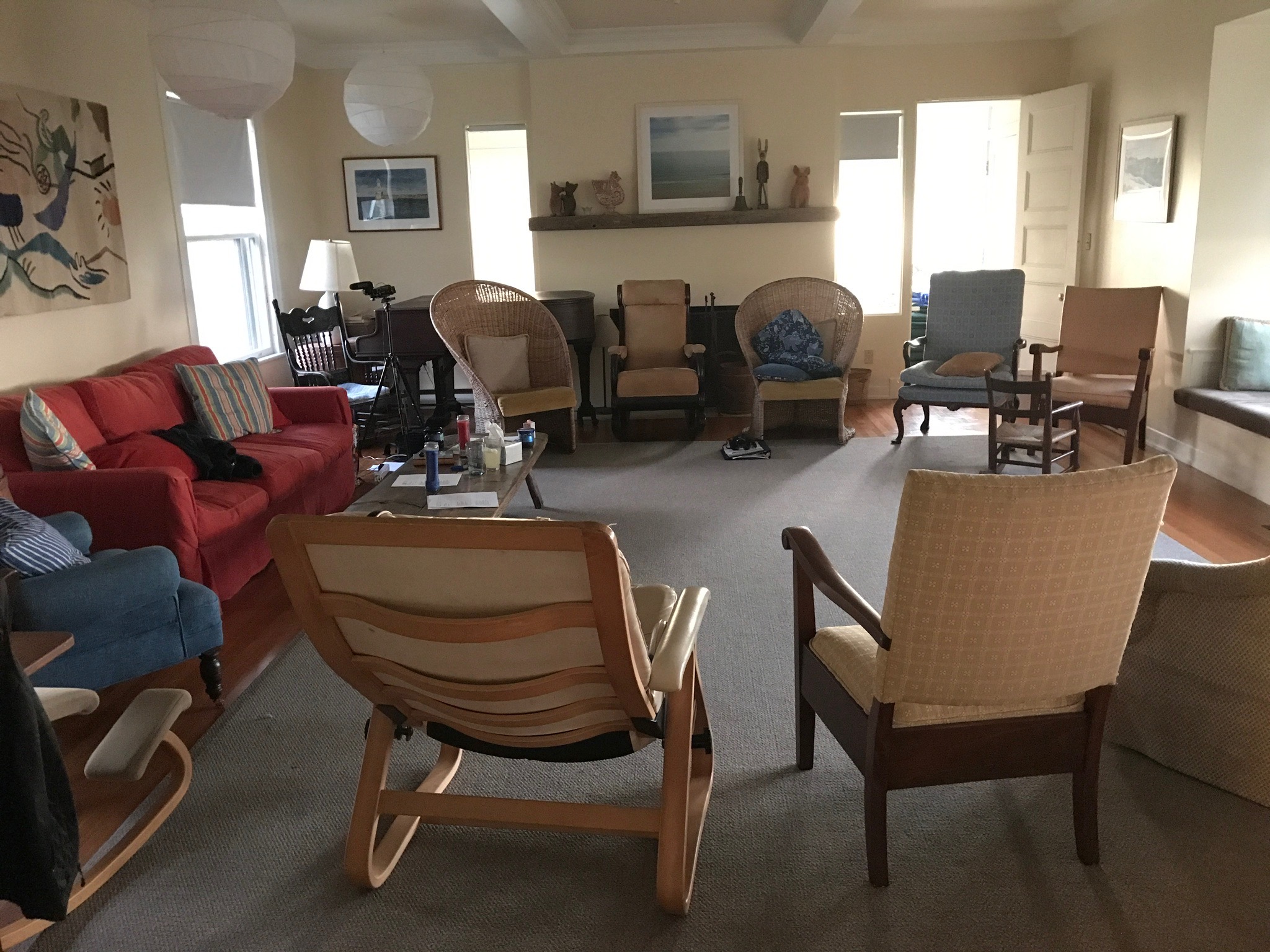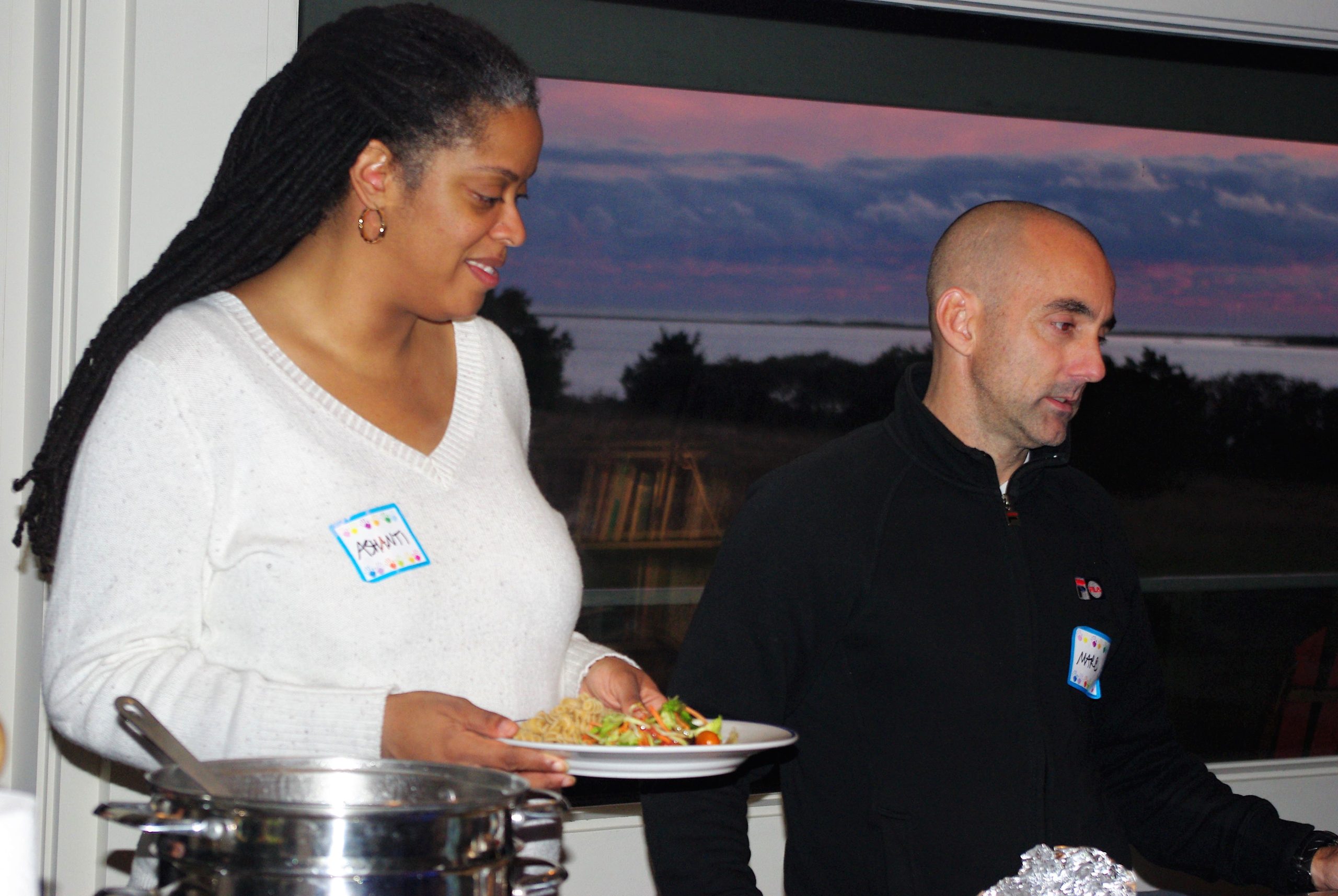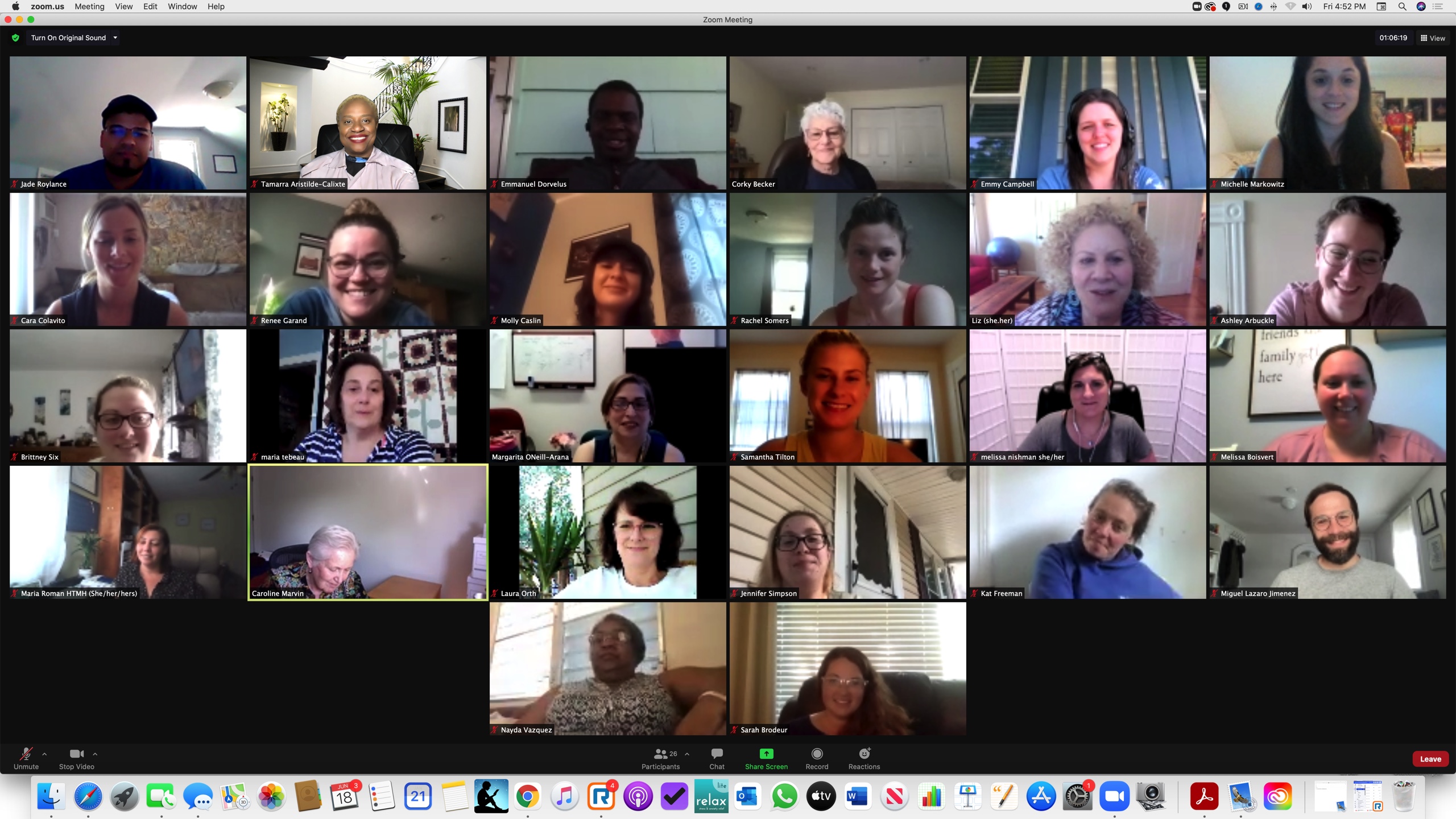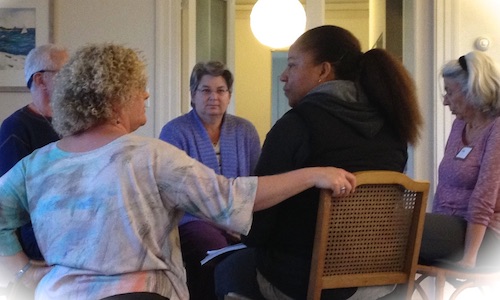The Intensive Program improves the foundation of your work by providing comprehensive learning in applying family systems approaches for helping professionals in a wide range of settings. Participants leave with increased confidence and capacity to serve those in need.
Description: “Intensive” is an academic year-long program providing a replicable transtheoretical family therapy model using evidence-based and other foundational practices. Participants learn to hold meetings using concepts and methods that support work with families, couples as well as individuals and all working groups. We teach ideas and tools from enduring and newer theories, integrating concepts from related fields including trauma, child welfare, domestic violence, neurobiology, and mindfulness. The class is an elegant blend of didactic, discussion, demonstration, and practicing skills. Participants master an artful balance of therapeutic leadership and client empowerment which increases skill, improves treatment outcomes, and enhances the foundation of their work. They leave the course with an evolving family systems practice that fits their clinical style and populations served.
Practitioners served: The Intensive Program provides comprehensive learning in applying family therapy approaches for helping professionals who are providing direct service, supervision, teaching and program management in a wide range of settings. Most mental health professionals leave masters and doctoral programs with little formal training in working with family groups. Given that all clients are part of a family group and many clinicians’ work directly with couples and families, in-depth training in family systems therapies is needed subsequent to graduate training. Practitioners without adequate training in this subspecialty can inadvertently perpetuate relational problem patterns, further marginalizing vulnerable and underserved populations.The program serves the needs of beginning and intermediate clinicians with little formal family systems training who are or would like to work with couples and families. We also prepare advanced practitioners who take the course to deepen their knowledge and enhance capacities for teaching, training, and administrative roles.
2023-2024 dates are here!
9/8/23, 9/29/23, 11/3/23, 12/8/23, 1/12/24, 2/9/24, 3/1/24, 3/29/24, 4/12/24, 5/3/24, 5/31/24
Eleven Fridays from September, 2023-May, 2024: One Friday a month, except for September, March, and May when there are two classes
Hours: 8:30am-5pm Eastern (there will be ample breaks from the screen during the day)
Location of Friday classes: Live on Zoom
Retreat: Monday to Wednesday 10/16/23-10/18/23 *The retreat will be held in person, depending on public health guidance.
The course is scheduled for a full day approximately once a month to allow for intensive learning and to facilitate work/life balance.
Apply for the Course
Group informational interviews are required to provide an orientation to the course, ensuring the course is a good fit for you.
Informational interviews dates: 4/20/23 from 9-11am, 5/5/23 from 9-11am, 5/25/23. from 10am-12pm, 7/14/22 from 9-11am, 8/11/23 from 9-11am (all times in Eastern).
You will be asked to submit your resume or CV upon registering for an informational interview.
Attendance is limited to 24 participants.
Register for an informational interview below
Register for August 11, 2023 →
Contact us for an orientation to the course to see if it is a good fit for you.
The Intensive Certificate Program in Family Systems Therapy includes:
- Teaching theoretical lenses and interventions using concepts to facilitate change from a range of family systems perspectives
- Shifting from an individual focus to a facilitative, multipartial stance to enhance relationships and uncover solutions that occur between people
- Identifying, modeling, and praticing a myriad of questions from systemic therapies as empowering interventions
- Working with skill, humility, and respect across intersecting identities, historical trauma, physical and mental health challenges
- Focusing on improved safety and well-being for all involved
- Teaching evidence-based practices that are client and outcomes driven with opportunities to critique relevance and applications of each model
- Emphasizing the use of client feedback to guide the work
- Being facilitated in a strength based, empowering way that mirrors proposed ways of working
- Teaching modes of inquiry and witnessing that enhance capacity for client self-reflection, responsiblity taking, and abilities to understand others
- Increasing practitioner skill, capacity, and creativity as it applies to challenging situations
- Focusing on working with a diverse range of families, couples, and presenting problems
- Addressing the effects of social constructions of race, ethnicity, class, gender, sexual orientation, ability and other differences that impact individual wellness and family functioning
- Attending to the development of the individual learning needs of practitioners with a range of experience working in a variety of settings
- Creating a connected community of supportive learners to facilitate integration of new material
- Sharing tools to help participants implement and teach these skills
- Class 1: Understanding General Systems Theory: Observing a System, Listening to a Family, Systemic Formulation of Problems
- Class 2: Working With the Family Framework: Structural Family Therapy
- Class 3, Retreat: Holding a Family Meeting
- Class 4: Seeing Problematic Patterns Not Problematic People: Useful Strategic Concepts and Questions for Assessment
- Class 5: Assessing Relational and Intergenerational Patterns: Concepts from Bowen and Tomm
- Class 6: Moving From Causes to Constraints: Assessment and Intervention In Socio-Political-Cultural Contexts
- Class 7: Solution Focused Work and Broadening the Lens
- Class 8: Introduction to Narrative Work: Seeing People as Being in a Relationship with Problems
- Class 9: Inviting Responsibility: Working with People with Challenging Behavior in Effective Ways, Part 1 Abuse, Neglect, Intimate Partner Violence, Mental Illness and Other Relational Challenges
- Class 10: Working with People with Challenging Behavior In Effective Ways, Part 2 Mindfulness and Inviting Responsiblity for Change
- Class 11: Working with Families to Increase Acceptance with Transgender and Gender Non-Conforming Children & Integrating Models
- Class 12: Reviewing the Year: Sustaining Change and Saying Goodbye in Family Work
- 8:30-9am Participants discuss their reflections/questions about class readings and/or any new skills that they tried
- 9:30-11am Didactic presentation and discussion of new material
- 11-11:15am Break
- 11:15am-12:30pm Practical applications of new material through role play demonstrations and discussion
- 12:45-1:45pm Lunch
- 1:45-3:15pm Small group practice of micro skills through role play case examples with close coaching
- 3:15-3:30pm Break
- 3:30-5pm Applications of new learning to clinical examples from a range of presenting problems and family types
Note: detailed learning objectives for each day of the course are provided to participants and for continuing education approval processes.
- Identify the purpose, practice and two questions associated with each phase of the 6-phase model.
- Explain how the use of the concept of interpersonal patterns is foundational to working well across different ethnicities and with other marginalized identities.
- Describe the cycle of family development and explain how it applies to reframing problems.
- Describe the problem focused genogram.
- Explain the model of change from the perspective of each of the following models: general systems theory, structural family therapy, brief strategic therapy, Bowen family therapy, solution focused and narrative therapy.
- Identify two strategies for assessment used in each of the following models: general systems theory, structural family therapy, brief strategic therapy, Bowen family therapy, solution focused and narrative therapy.
- Identify two interventions that apply to the use of each model: general systems theory, structural family therapy, brief strategic therapy, Bowen family therapy, solution focused and narrative therapy.
- Describe one practice for developing treatment goals and plans to address safety issues from the lenses of: general systems theory, structural family therapy, brief strategic therapy, Bowen family therapy, solution focused and narrative therapy.
- List two questions to ask clients that are used in the practice of each of these models: general systems theory, structural family therapy, brief strategic therapy, Bowen family therapy, solution focused and narrative therapy.
- Describe the collaborative helping map and explain how it informs effective work with a wide range of presenting problems, ethnicities and people with other marginalized identities.
- Describe the Racial/Cultural Identity Development Model and the White Racial Identity Development Model.
- Apply concepts from mindfulness and interpersonal neurobiology to the best practice of family systems therapies.
- Describe three practices used to invite clients to take responsibility for abusive and other problematic behavior in the context of couple and family work.
- List one strategy for working with high conflict situations from each of the following models: general systems theory, structural family therapy, brief strategic therapy, Bowen family therapy, solution focused and narrative therapy.
- Compare theoretical models learned in the course.
- Critique each model by describing potential limitations of their use: general systems theory, structural family therapy, brief strategic therapy, Bowen family therapy, solution focused and narrative therapy.
Course Faculty
 (She/Her) is the course director and primary instructor for the Intensive Certificate Program in Family Systems Therapy. Her work in child psychiatric inpatient, home based, residential and outpatient settings inform her passion for working competently and compassionately with couples and families. She is the co-director of the Harvard Couples Conference and a teaching associate for Harvard Medical School providing family therapy training to staff at Cambridge Health Alliance in the Couple and Family Therapy Program. Liz has over 30 years of experience doing family, couples and individual therapy in child psychiatric inpatient, home- based and private practice settings. The foundation of her work rests on the training she received as a student in the Intensive Program at the Family Institute of Cambridge in 1991. She was on the faculty of the Family Institute of Cambridge from 2003 until 2009.
(She/Her) is the course director and primary instructor for the Intensive Certificate Program in Family Systems Therapy. Her work in child psychiatric inpatient, home based, residential and outpatient settings inform her passion for working competently and compassionately with couples and families. She is the co-director of the Harvard Couples Conference and a teaching associate for Harvard Medical School providing family therapy training to staff at Cambridge Health Alliance in the Couple and Family Therapy Program. Liz has over 30 years of experience doing family, couples and individual therapy in child psychiatric inpatient, home- based and private practice settings. The foundation of her work rests on the training she received as a student in the Intensive Program at the Family Institute of Cambridge in 1991. She was on the faculty of the Family Institute of Cambridge from 2003 until 2009.
In 2017, Liz was the appreciative recipient of the award for the Greatest Contribution to Social Work Practice from the Massachusetts Chapter of the National Association of Social Workers. She has written two articles on doing intensive home-based family therapy. Recently she published a short article in the New England Journal For Relational and Systemic Therapy called Couple Therapy in the Absence of Presence: Translating Presence to the Screen. Her clinical work and teaching integrates family systems, mindfulness, trauma and recovery orientations. Her work and life is informed by the experience of growing up with a father affected by Bipolar Disorder.
Liz has Level 2 EMDR, Level 2 LifeForce Yoga and is a Level 3 trained Certified Internal Family Systems therapist in addition to being trained in Intimacy from the Inside Out and AEDP for Couples. In her office in Watertown, Liz sees adolescents and adults in individual, couple and family therapy. Liz also provides individual and group supervision, agency consultation and training. She has provided training for DCF and DMH staff in a variety of settings.
 (Pronouns: she/her/hers) is a Haitian American Youth and Trauma Specialist who earned her master’s degree in Marriage and Family Therapy from Capella University in 2010. Tamarra has worked as an In-Home Therapist with children and their families throughout the southeast region in Massachusetts since 2011. In therapeutic practice, Tamarra uses a strength based and client centered approach integrating her background in family systems and trauma informed practices. Tamarra provides therapeutic services to couples and families in French and Haitian Creole. She is the owner and Interim Clinic Director at the TJocelyne Counseling and Consulting Clinic in Brockton. In her role at TJJocelyne, Tamarra teaches staff and interns family systems therapies. Prior to joining the faculty of the Intensive Program, Tamarra completed the course in the 2020.2021 academic year. In addition to being a Mom, she is a Certified Child and Adolescent Trauma Professional, Certified Dialectical Behavior Therapist, ADHD-Certified Clinical Service Provider.
(Pronouns: she/her/hers) is a Haitian American Youth and Trauma Specialist who earned her master’s degree in Marriage and Family Therapy from Capella University in 2010. Tamarra has worked as an In-Home Therapist with children and their families throughout the southeast region in Massachusetts since 2011. In therapeutic practice, Tamarra uses a strength based and client centered approach integrating her background in family systems and trauma informed practices. Tamarra provides therapeutic services to couples and families in French and Haitian Creole. She is the owner and Interim Clinic Director at the TJocelyne Counseling and Consulting Clinic in Brockton. In her role at TJJocelyne, Tamarra teaches staff and interns family systems therapies. Prior to joining the faculty of the Intensive Program, Tamarra completed the course in the 2020.2021 academic year. In addition to being a Mom, she is a Certified Child and Adolescent Trauma Professional, Certified Dialectical Behavior Therapist, ADHD-Certified Clinical Service Provider.

(She/Her) is a clinical psychologist, family and couple therapist, supervisor, teacher/trainer and consultant. She was a board member of the American Family Therapy Academy 2001-2009, Program Chair for the 2010 AFTA Meeting, and served as Secretary from 2011-2013. She was on the faculty of the Family Institute of Cambridge for 25 years during which time she taught the Intensive Program for ten years as well as other courses and workshops. She currently teaches for Therapy Training Boston including the Masters Series in Couple Therapy and a class on Narrative Therapy. Corky contributes to the Intensive Training in Family Systems Therapy through teaching and helping to train new faculty. She is the host of our movie events. Corky co-teaches a seminar on inpatient family work in the Department of Psychiatry at Harvard Medical School at Cambridge Health Alliance. She consults to the interpersonal skills exercise for the Project on Negotiation at Harvard Law School. She is a Senior Associate of Essential Partners (formerly known as the Public Conversations Project).
 (She/Her) is in private practice at The Meeting Point in Jamaica Plain, Massachusetts. She has been working with transgender & non-binary youth, young adults and their families for the past 10 years in a variety of clinical and community settings. Melissa co-directs a socially conscious business called SAYFTEE: Supporting Alternative Youth and Families through Empowerment and Education. SAYFTEE is committed to offering workshops, groups and services to meet the needs of gender expansive and LGBTQI youth and families in Massachusetts. Melissa was a student in the Intensive Program two times before becoming a faculty member in 2018. She has taught family therapy approaches for clincians working with families challenged with their children’s gender identities for the Maebright Group, Therapy Training Boston and SAYFTEE. Melissa is a consultant for Greater Boston PFLAG. Nine years ago she helped start a support group for parents of transgender children. She serves on the Board of Directors and as Assistant Director for Camp Aranu’tiq of Harbor Camps.
(She/Her) is in private practice at The Meeting Point in Jamaica Plain, Massachusetts. She has been working with transgender & non-binary youth, young adults and their families for the past 10 years in a variety of clinical and community settings. Melissa co-directs a socially conscious business called SAYFTEE: Supporting Alternative Youth and Families through Empowerment and Education. SAYFTEE is committed to offering workshops, groups and services to meet the needs of gender expansive and LGBTQI youth and families in Massachusetts. Melissa was a student in the Intensive Program two times before becoming a faculty member in 2018. She has taught family therapy approaches for clincians working with families challenged with their children’s gender identities for the Maebright Group, Therapy Training Boston and SAYFTEE. Melissa is a consultant for Greater Boston PFLAG. Nine years ago she helped start a support group for parents of transgender children. She serves on the Board of Directors and as Assistant Director for Camp Aranu’tiq of Harbor Camps.
 (She/Her) is a clinical psychologist and family therapist. She practiced and taught at the Family Institute of Cambridge for over 40 years as a Director and a Senior Faculty Member. She co-directed the Intensive Family Therapy Program at the Institute with Charles Verge and developed the long running course, New Method’s in Women’s Group Process. Caroline was a faculty member at the Massachusetts School of Professional Psychology where she originated and taught the Advanced Family Therapy Course. Caroline graduated from the second year of the Intensive Program in 1976 and was invited to teach in the third year of the course. She brings an important historical perspective to the current training, is an important resource with regard to group process, teaching pedagogy as well as supporting younger faculty to be grounded in founational family therapy ideas and practices. Caroline has a small private practice via telehealth.
(She/Her) is a clinical psychologist and family therapist. She practiced and taught at the Family Institute of Cambridge for over 40 years as a Director and a Senior Faculty Member. She co-directed the Intensive Family Therapy Program at the Institute with Charles Verge and developed the long running course, New Method’s in Women’s Group Process. Caroline was a faculty member at the Massachusetts School of Professional Psychology where she originated and taught the Advanced Family Therapy Course. Caroline graduated from the second year of the Intensive Program in 1976 and was invited to teach in the third year of the course. She brings an important historical perspective to the current training, is an important resource with regard to group process, teaching pedagogy as well as supporting younger faculty to be grounded in founational family therapy ideas and practices. Caroline has a small private practice via telehealth.
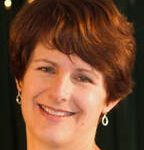
 (she/her) has been a licensed independent Social Worker for over 20 years. She earned her Master’s Degree from the Boston University School of Social Work. Lys completed the Intensive Certificate Program in Family Therapy and the Couples Therapy Course through the Family Institute of Cambridge. She was a post-graduate fellow at Boston Children’s Hospital in the Department of Child and Adolescent psychiatry. Throughout her career, Lys provided clinical services and supervision at both the Arbour-Choate Family and Home Consultation Service and the Massachusetts Society for the Prevention of Cruelty to Children. Her current clinical work specializes in the areas of mental health and child and family welfare. Lys provides therapy via telehealth and in-person sessions in her private practice and provides consultation for service provision in varied settings. In addition to her clinical work, Lys is also the Director of the Mental Health Program at Level Education Group and has been a consultant and planner of continuing education for a national audience of social workers, marriage and family therapists, psychologists, and counselors for over 16 years; she leverages her ongoing clinical experience to continue to inform continuing education content.
(she/her) has been a licensed independent Social Worker for over 20 years. She earned her Master’s Degree from the Boston University School of Social Work. Lys completed the Intensive Certificate Program in Family Therapy and the Couples Therapy Course through the Family Institute of Cambridge. She was a post-graduate fellow at Boston Children’s Hospital in the Department of Child and Adolescent psychiatry. Throughout her career, Lys provided clinical services and supervision at both the Arbour-Choate Family and Home Consultation Service and the Massachusetts Society for the Prevention of Cruelty to Children. Her current clinical work specializes in the areas of mental health and child and family welfare. Lys provides therapy via telehealth and in-person sessions in her private practice and provides consultation for service provision in varied settings. In addition to her clinical work, Lys is also the Director of the Mental Health Program at Level Education Group and has been a consultant and planner of continuing education for a national audience of social workers, marriage and family therapists, psychologists, and counselors for over 16 years; she leverages her ongoing clinical experience to continue to inform continuing education content.
 (she/her) is a private practice clinician in Western MA. Kim works with children, young adults, and adult women who have experienced trauma, anxiety, depression, and postpartum depression in individual and family therapy. Kim has worked with children, adolescents, adult women, and families for the past 14 years in a variety of settings including outpatient, preschools, residential programs for youth in DCF care & with adult women with substance use disorders. She has experience as an administrator overseeing residential programs for youth in DCF care. Kim is an adjunct professor at Smith College School for Social Work and Westfield State University in the MSW programs. She has taught graduate courses including family therapy and field work. Kim has supervised Social Work interns for 8 years. In addition, Kim was a student in the Therapy Training Boston’s Intensive Certificate Program in Family Systems Therapies in 2019-2020.
(she/her) is a private practice clinician in Western MA. Kim works with children, young adults, and adult women who have experienced trauma, anxiety, depression, and postpartum depression in individual and family therapy. Kim has worked with children, adolescents, adult women, and families for the past 14 years in a variety of settings including outpatient, preschools, residential programs for youth in DCF care & with adult women with substance use disorders. She has experience as an administrator overseeing residential programs for youth in DCF care. Kim is an adjunct professor at Smith College School for Social Work and Westfield State University in the MSW programs. She has taught graduate courses including family therapy and field work. Kim has supervised Social Work interns for 8 years. In addition, Kim was a student in the Therapy Training Boston’s Intensive Certificate Program in Family Systems Therapies in 2019-2020.
Student Reflections
In this video students summarize what they learned about holding family and couple meetings on our weekend retreat. In the second video students summarize what was critical to their growth and development at the end of the course.
Additional Information
Participants MUST attend 100% of the program to earn the Certificate of Post Graduate Training in Family Systems Therapies and 94 CEUs for eligible professions. CEU certificates will be downloadable at the end of the course after you are fully paid and have completed the evaluation form.
- Therapy Training Boston is approved by NBCC as an Approved Continuing Education Provider, ACEP No. 6707 for Mental Health Counselors. Programs that do not qualify for NBCC credit are clearly identified. Therapy Training Boston is solely responsible for all aspects of the programs.
- This program has been approved for 94 Social Work Continuing Education hours for relicensure, in accordance with 258 CMR. NASW-MA Chapter CE Approving Program, Authorization Number #D90655
- This program is approved by the New England Association for Family and Systemic Therapy (NEAFAST) on behalf of the Massachusetts Board of Registration of Allied Mental Health & Human Services Professions for 94 LMFT professional continuing education credits. Approval #PC-041820
- We will provide a certificate of completion for allied professions.
No refunds are available for cancellations by participants regardless of the reason or time frame. If participants cancel 30 days or more prior to the event beginning, they may apply the fee to a future program. Workshops may be cancelled by Therapy Training Boston if minimum enrollment requirements are not met or in the case of other unexpected circumstances. If this occurs, a full refund will be provided.

